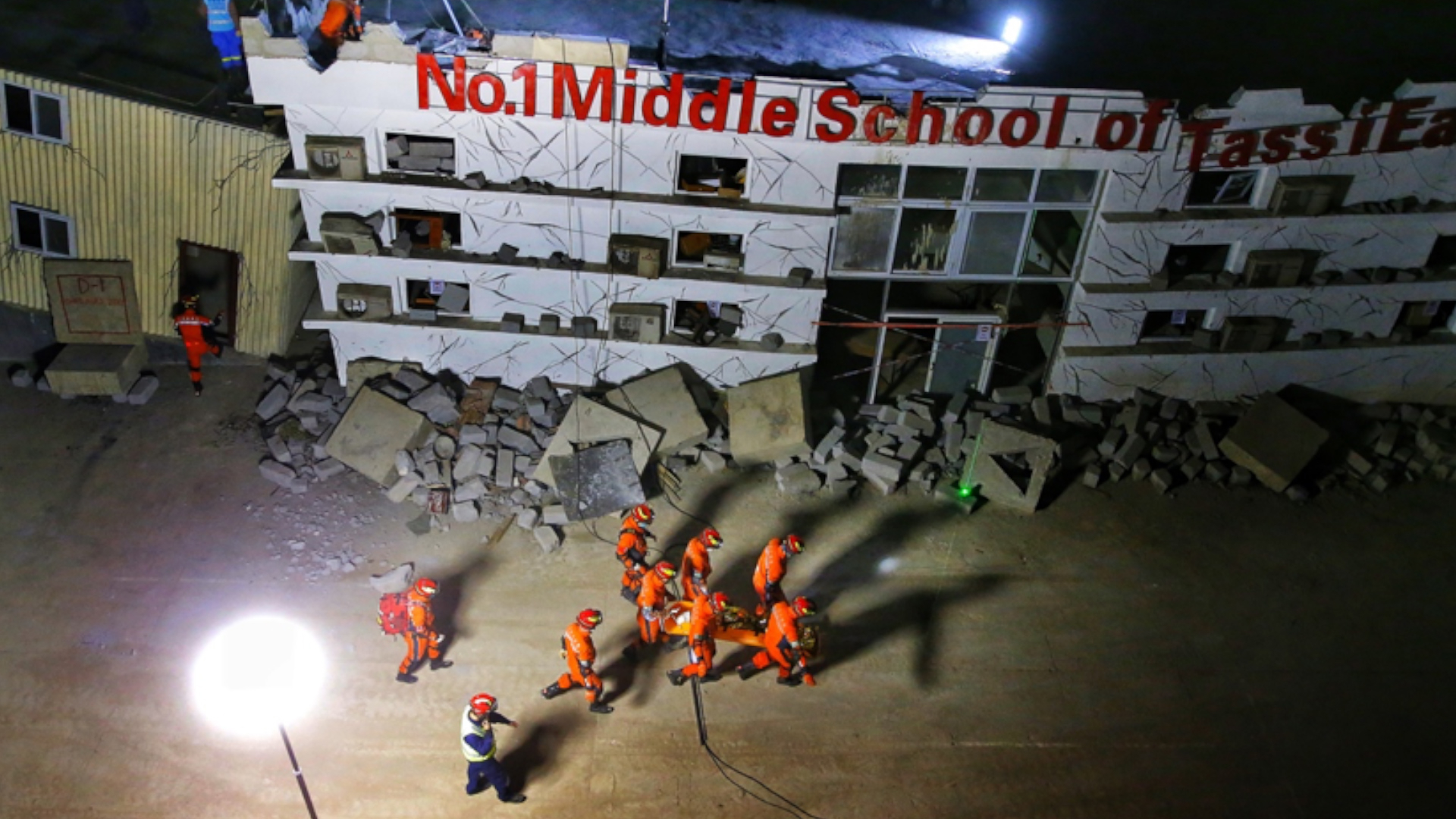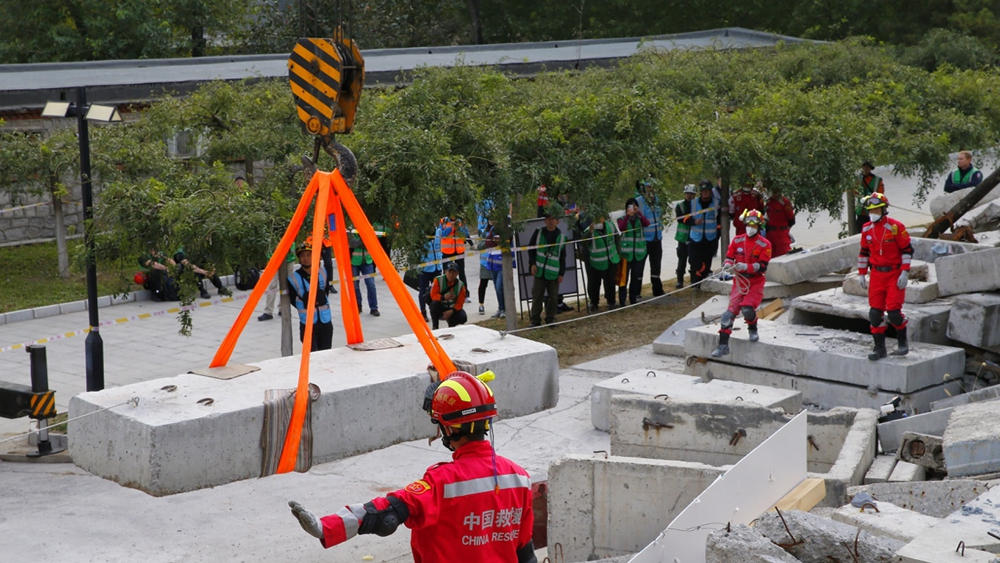02:54

China's Search and Rescue Team and China's International Search and Rescue Team recently wrapped up a 40-hour continuous quake rescue drill in Beijing. It's part of a UN test to determine whether the teams are up to the UN criterion for major disaster relief missions around the world.
The two teams were evaluated and assessed by 20 experts from 14 countries in terms of team management, logistical support, search, rescue and medical care.
The Chinese teams passed the assessment successfully, making China the first country in Asia to have two UN-standard heavy-duty rescue teams.
Peter Wolff, chief inspector of the United Nations inspection team, says the two teams passed the test with an "outstanding" performance.
"We have seen here perfect equipment, technology that was used in international standard, and their coordination, the so-called USAR coordination, that is coordinating all the USAR activities in the case of earthquake, that was outstanding and we are very proud to be part of the classification process," said Mr. Wolff.

Rescuers of China International Rescue Team use a crane to remove rubble. /CGTN Photo
Rescuers of China International Rescue Team use a crane to remove rubble. /CGTN Photo
To locate the victim buried under dangerous and complicated structures, the team has also trained professional search dogs.
But to dig through the rubble, rescuers have to deploy all kinds of heavy equipment, including cranes and digging machines.
Whether the teams are able to operate these machines will determine whether the United Nations grants them the "international standard."
Every five years, the UN carries out a reclassification of each team to see if they are still able to do the job effectively.
Ten years ago, China International Search and Rescue Team was the second in Asia after Singapore, and the twelfth in the world, to pass the UN assessment as the world-class heavy international rescue team. In 2014, the team passed the reclassification with a "truly outstanding" performance. This year, the expert says the team performed "even better" than five years ago.

Both teams are granted International Heavy Rescue Team by the United Nations. /CGTN Photo
Both teams are granted International Heavy Rescue Team by the United Nations. /CGTN Photo
"Every five years, the classifiers come from all over the world to see how they go. In 2014, the team did very very well, but they did even better in 2019, with less than a handful of items they need to improve on. They've already got a very good reputation across the globe for humanitarian aid, and they just gonna be even better," said Mr. John Cawcutt, coach of the China International Rescue Team.
China's Rescue Team joined the frontlines of disaster relief missions around the world after being founded by the Ministry of Emergency Management last year.
The team helped restore livelihoods in Mozambique after Cyclone Idai hit the southeast African country in March.
Chen Lijuan, a nurse of the China Rescue and Search Team, says the classification test will help them perform better and faster in future missions.
"The assessment work is a guide for us, and we have now a better understanding of the details and procedures. Our actual combat in Mozambique, together with this assessment, will be of great help to our future relief efforts," she said.
The captain of China International Rescue Team, Xiao Wei, said he was very satisfied with his teammates during the assessment.
Armed with experience and training, the two Chinese rescue teams are ready to help those in crises and spread humanitarian relief around the world.